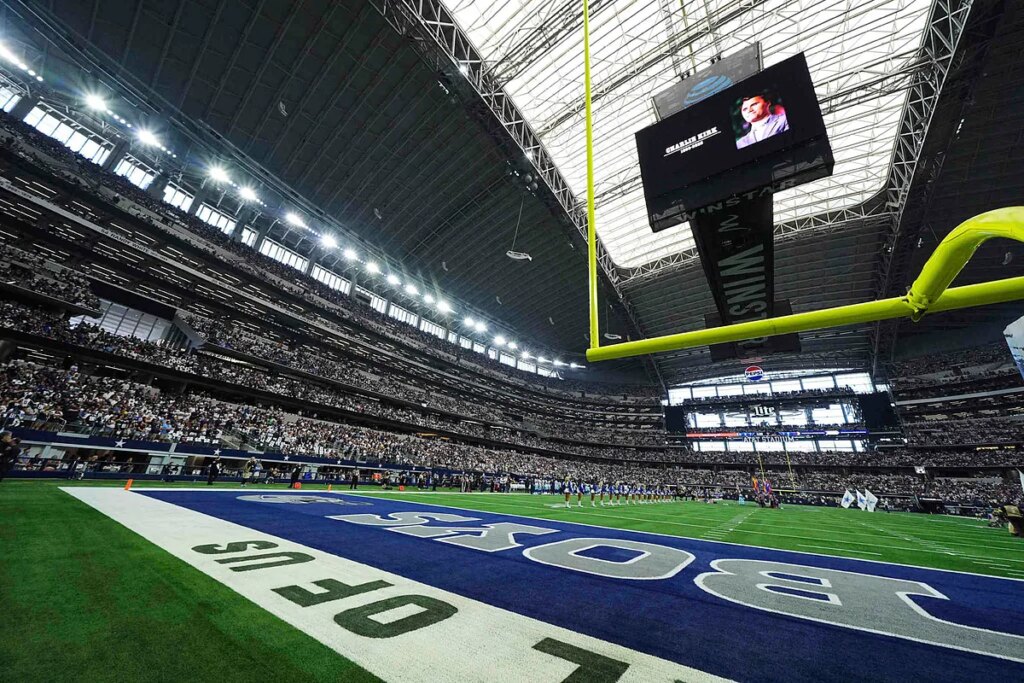The NFL’s second week of the season began not only with touchdowns and rivalries but also with visible division over how to acknowledge the assassination of conservative activist Charlie Kirk.
While several franchises held moments of silence in his honor, others chose not to, exposing fault lines over whether the league should collectively recognize a polarizing figure whose death has dominated headlines.
Kirk, a 31-year-old conservative commentator and founder of Turning Point USA, was shot dead during a campus appearance in Utah last week.
His killing prompted vigils across the country and drew tributes from political allies, including Vice President JD Vance, who accompanied his casket back to Arizona.
Kirk’s widow, Erika, has vowed to continue his work, telling supporters in a livestream, “The movement my husband built will not die.”
Against that backdrop, the NFL stepped cautiously. On Thursday night, the Green Bay Packers and Washington Commanders opened Week 2 with a league-organized moment of silence.
But by Friday, the NFL clarified that any further tributes would be left to the discretion of individual clubs. That decision created a patchwork of responses on Sunday.
At MetLife Stadium, the New York Jets dimmed the lights and projected Kirk’s image onto the jumbotron as the crowd fell quiet.
The Dallas Cowboys did the same in Arlington, while the Miami Dolphins extended their pregame moment of silence to include Kirk, the victims of the 9/11 attacks, and “any other victims of violence.”
The Pittsburgh Steelers lowered their flag to half-staff before hosting the Seattle Seahawks, and the Tennessee Titans honored him alongside the Los Angeles Rams in Nashville.
Yet in Detroit, Cincinnati and Baltimore, there was no mention of Kirk before kickoff. The Ravens’ silence drew particular scrutiny given that the franchise held a tribute to George Floyd in 2020 and supported player demonstrations that season.
The Lions and Bengals also declined to join the memorials, leaving fans and commentators to question whether teams were quietly resisting the politicization of game day.
The NFL defended its hands-off approach in a lengthy statement, noting that tributes have historically followed tragedies ranging from school shootings to international attacks and natural disasters.
“There have been a variety of moments of silence and tributes in-stadium and on-air in all games or a game immediately following events that rise to a national level,” the league said. “Clubs also often hold moments following a tragic event that affects their community.”
The impact of Kirk’s assassination
Kirk’s assassination has quickly become one of the most politically charged moments in recent American memory. Authorities allege that 22-year-old Tyler James Robinson carried out the attack, later mocking the FBI manhunt in private online messages.
Ammunition recovered from the scene carried anti-fascist engravings, including one casing inscribed with “Hey, fascist! Catch!” Utah’s governor confirmed Robinson’s family had described his recent political radicalization.
That context has made NFL tributes complicated. For teams like the Cowboys and Jets, acknowledging Kirk was framed as an act of respect toward his family and his widely reported love of football.
For others, staying silent may have been a way to avoid the backlash that comes with elevating a deeply polarizing figure in front of a diverse fan base.
The result was a weekend where unity gave way to fragmentation. In some stadiums, the silence was loud, underscoring grief and solidarity. In others, play began without pause, leaving supporters to honor Kirk in their own way.
The debate is unlikely to fade quickly. Turning Point USA has scheduled a public memorial for September 21 at State Farm Stadium in Arizona, home of the Cardinals, and the event is expected to draw national attention.
Whether more NFL teams choose to acknowledge Kirk again remains uncertain, but the contrasting decisions this past weekend highlighted just how divided the league, and its audience, can be when sports intersect with politics.
For now, the NFL finds itself navigating yet another cultural flashpoint, balancing the desire to honor tragedy with the recognition that in today’s climate, even silence is interpreted as a statement.
Read the full article here

